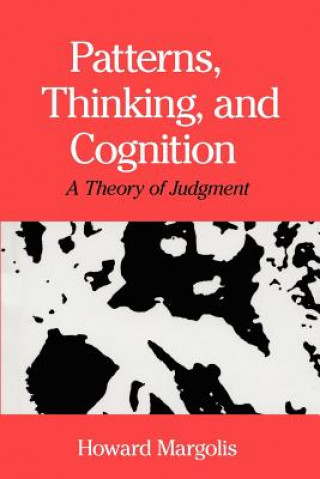
Kód: 04547228
Patterns, Thinking, and Cognition - A Theory of Judgment
Autor Howard Margolis
For decades, both policymakers and analysts have been frustrated by sharp and stubborn conflicts between expert and lay perceptions on issues of environmental risk. For example, most experts - even those opposed to nuclear power o ... celý popis
- Jazyk:
 Angličtina
Angličtina - Vazba: Brožovaná
- Počet stran: 340
Nakladatelství: The University of Chicago Press, 1990
- Více informací o knize

Mohlo by se vám také líbit
-

Handbook of Art Therapy
2690 Kč -

Handbook of Landscape Archaeology
1724 Kč -

Fal Nama: Divination Book of Hafez of Shiraz
661 Kč -

Six of Crows: Collector's Edition
428 Kč -

Oxford Handbook of Cognitive Science
6104 Kč -

Everyday Gratitude: Inspiration for Living Life as a Gift
362 Kč -

Standard Deviation of Death: The Outlier Prophecies
391 Kč -

Magos
312 Kč -
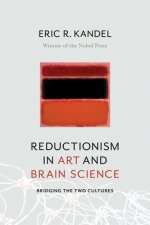
Reductionism in Art and Brain Science
563 Kč -

The City of Brass
302 Kč -

Life 3.0
262 Kč -

Behavioral Psychology: Understanding Human Behavior
3878 Kč -

Very First Questions and Answers What is the Moon?
223 Kč -

The Archaeology Book
401 Kč -

Kim Jiyoung, Born 1982
268 Kč -

Mindf*ck
290 Kč -

Peaky Blinders: The Legacy - The real story of Britain's most notorious 1920s gangs
250 Kč -

Pattern Cutting Second Edition
1462 Kč -

Geopolitical Alpha
595 Kč -

Natural History Book
979 Kč -

Bomba!
342 Kč -

Halo Encyclopedia
1181 Kč -

Workflow Automation with Microsoft Power Automate - Second Edition
1450 Kč -

Architecture
968 Kč -

Fundamentals of Cognition
1774 Kč -

Complete Swedish Beginner to Intermediate Course
969 Kč -

News Interview
3242 Kč -

Will I Ever be Good Enough?
481 Kč -

Sabiston and Spencer Surgery of the Chest
8491 Kč -

The Art Therapy Sourcebook
517 Kč -

Freefall
470 Kč -

Infinite Jest
378 Kč -

Descent of Man
293 Kč -
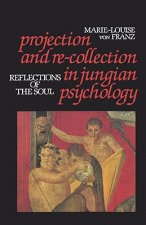
Projection and Re-collection in Jungian Psychology
779 Kč -
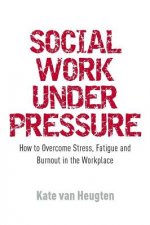
Social Work Under Pressure
957 Kč -

Now What?
404 Kč -

Ready Player One
205 Kč -

Global Beginner Workbook & CD with key Pack
315 Kč -

What the Face Reveals
2806 Kč -

Malaria Control During Mass Population Movements and Natural Disasters
1511 Kč -

Centrist Manifesto
311 Kč -

Close
508 Kč -
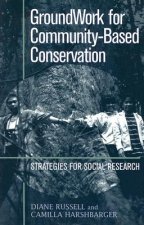
GroundWork for Community-Based Conservation
1645 Kč -
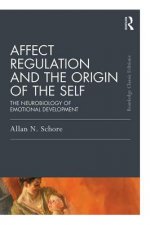
Affect Regulation and the Origin of the Self
3024 Kč -

Vanda Přísně tajné!
178 Kč -

Alergologie do kapsy
288 Kč -

Komentarz do Konstytucji RP art. 120, 121, 122, 123, 124
356 Kč -

COOK4ME
364 Kč -

Léčivé a zrádné síly hub
419 Kč
Darujte tuto knihu ještě dnes
- Objednejte knihu a zvolte Zaslat jako dárek.
- Obratem obdržíte darovací poukaz na knihu, který můžete ihned předat obdarovanému.
- Knihu zašleme na adresu obdarovaného, o nic se nestaráte.
Více informací o knize Patterns, Thinking, and Cognition - A Theory of Judgment
Nákupem získáte 122 bodů
 Anotace knihy
Anotace knihy
For decades, both policymakers and analysts have been frustrated by sharp and stubborn conflicts between expert and lay perceptions on issues of environmental risk. For example, most experts - even those opposed to nuclear power on other grounds - would see precautions like those now in place as adequate to protect against risks from nuclear waste. But the public finds that very hard to believe. Similar sharp conflicts of expert/lay intuition are evident on a wide range of risk issues, from the safety of bendictin as a treatment for morning sickness to the safety of irradiation of food to destroy microorganisms. In Dealing with Risk, Howard Margolis explores the expert/lay rift surrounding such contentious issues and provides a provocative new account. The usual explanation of expert/lay conflicts is that experts are focused only on a narrow notion of risk - such as potential fatalities - but lay intuition is concerned about a wide range of further concerns, such as fairness and voluntariness of exposure. Margolis argues that this "rival rationalities" view in a fundamental way misses the point of these controversies, since the additional dimensions of lay concern often are more plausibly interpreted as reflections of lay concern than as causes. Margolis argues that risk assessment typically involves weighing a broad range of often complicated trade-offs between costs and benefits. As laypersons, however, we are by definition forced to make judgments on complex matters beyond the scope of our normal experience. Especially in cases involving potential danger, we frequently discount nuance and respond more viscerally. Cognitively we fall back on default responses, all-purpose intuitionssuch as "better safe than sorry" or "nothing ventured, nothing gained." Such intuitions don't admit of careful balancing of pros and cons, and lay opinion consequently becomes polarized and at odds with the expert view.
 Parametry knihy
Parametry knihy
Zařazení knihy Knihy v angličtině Society & social sciences Psychology Psychological theory & schools of thought
1224 Kč
- Plný název: Patterns, Thinking, and Cognition - A Theory of Judgment
- Autor: Howard Margolis
- Jazyk:
 Angličtina
Angličtina - Vazba: Brožovaná
- Počet stran: 340
- EAN: 9780226505282
- ISBN: 0226505286
- ID: 04547228
- Nakladatelství: The University of Chicago Press
- Hmotnost: 556 g
- Rozměry: 231 × 158 × 22 mm
- Datum vydání: 03. August 1990
Oblíbené z jiného soudku
-

The Empathy Game
607 Kč -

Red Book
6053 Kč -

A General Introduction to Psychoanalysis
130 Kč -

Inner Gold
524 Kč -

Ego and the Id
94 Kč -

Man's Search for Meaning, Gift Edition
570 Kč -

Secret World of Drawings
517 Kč -

Psychoanalytic Diagnosis
1213 Kč -

Situation Is Hopeless But Not Serious
402 Kč -
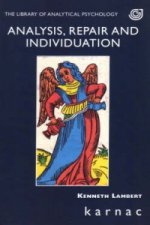
Analysis, Repair and Individuation
1889 Kč -
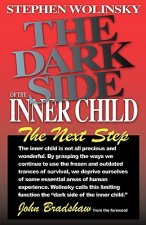
Dark Side of the Inner Child
585 Kč -
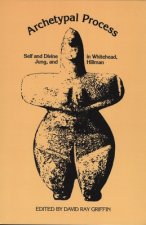
Archetypal Process
1031 Kč -

Ape that Understood the Universe
637 Kč -
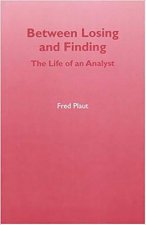
Between Losing and Finding
840 Kč -

Four Archetypes
574 Kč -

Threshold Experiences
970 Kč -
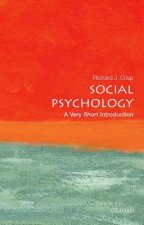
Social Psychology: A Very Short Introduction
282 Kč -

Behave
334 Kč -

The Red Book – A Reader`s Edition
948 Kč -

Emotional Intelligence
260 Kč -
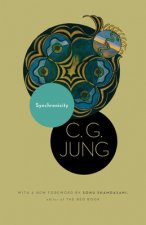
Synchronicity – An Acausal Connecting Principle
314 Kč -

The Sublime Object of Ideology
457 Kč -

Memories, Dreams, Reflections
324 Kč -

Make It Stick
826 Kč -

Civilization and Its Discontents
250 Kč -

Choice Factory
410 Kč -

No Boundary
379 Kč -

Problem of the Puer Aeternus
632 Kč -

Answer to Job
223 Kč -

Carl Jung: Wounded Healer of the Soul
678 Kč -

Psychoanalyst Meets Marina Abramovic
481 Kč -

The Interpretation of Dreams
146 Kč -

Dreams
554 Kč -

Ego and Archetype
853 Kč -

Great Mother
688 Kč -

How To Read Lacan
303 Kč -

Integral Psychology
603 Kč -

Archetypes and the Collective Unconscious
1495 Kč -

Freud and Beyond
597 Kč -

Home is Where We Start from
357 Kč -

Jung's Studies in Astrology
1300 Kč -

Dreams
482 Kč -

Beyond the Pleasure Principle
357 Kč -

Red Book of C.G. Jung
998 Kč -

Quantum Mind
792 Kč -

Ecrits
761 Kč -
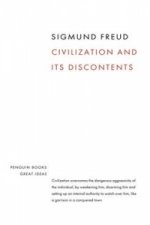
Civilization and its Discontents
185 Kč -
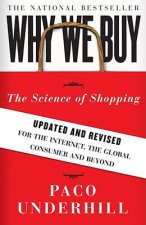
Why We Buy
393 Kč -
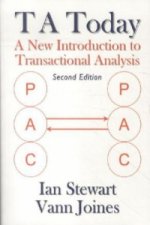
T A Today
541 Kč
Osobní odběr Praha, Brno a 12903 dalších
Copyright ©2008-24 nejlevnejsi-knihy.cz Všechna práva vyhrazenaSoukromíCookies



 Vrácení do měsíce
Vrácení do měsíce 571 999 099 (8-15.30h)
571 999 099 (8-15.30h)